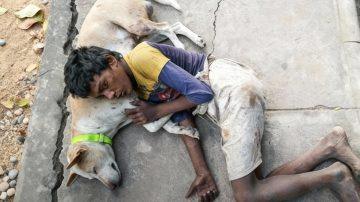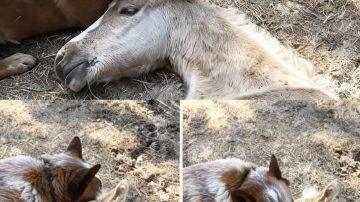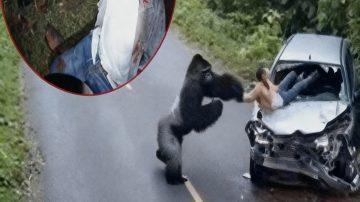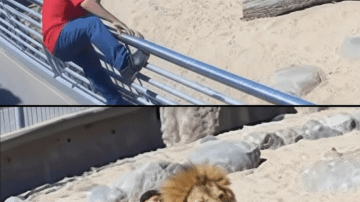In a quiet, tree-lined neighborhood, a remarkable sight unfolds every morning as the sun casts long shadows across the pavement. Gregory Lane, a man whose unassuming demeanor belies a heart of immense compassion, embarks on his daily ritual. He pushes a modified stroller, not filled with infants, but with a lively crew of canine companions. These aren’t just any dogs; they are his beloved rescues, each one paralyzed and missing the use of their back legs. Some bear the scars of devastating accidents, hit by cars and left for dead. Others were cruelly abandoned, their spirits nearly broken by neglect. All of them, without exception, had been given up on by society, deemed beyond help – until they met Gregory. Known affectionately by locals as “the dog dad with the wheels,” Gregory’s journey began years ago, a serendipitous encounter that would forever alter the course of his life and the lives of countless animals.

His unexpected path began with a German Shepherd named Max, a powerful dog reduced to helplessness after a tragic accident. Vets delivered the grim news: Max should be euthanized. The prognosis was dire, the cost of long-term care astronomical. But Gregory, looking into Max’s intelligent, pleading eyes, found he simply couldn’t give up. He spent weeks poring over designs, learning basic mechanics, and painstakingly constructing a tiny, makeshift wheelchair. The moment Max rolled forward for the first time, tail wagging furiously, a look of pure, unadulterated joy on his face, Gregory felt an epiphany. This wasn’t just about saving one dog; this was his true calling, a purpose he never knew he was missing. The twist was not in Max’s recovery, but in Gregory’s discovery of his own profound capacity for specialized care.

Each morning, the routine is a carefully orchestrated symphony of care and anticipation. After the stroller ride to the local park, Gregory, with practiced ease, lifts each dog out. One by one, he attaches their custom-fitted wheelchairs, a moment of quiet connection between man and animal. With a gentle pat and a loving whisper – “Go on, kids” – he sends them off. The transformation is immediate and breathtaking. The dogs, once confined and immobile, suddenly burst into motion. They run, chase, bark, and tumble through the grass with an unbridled enthusiasm that defies their physical limitations. It’s as if their disabilities vanish, replaced by pure, joyful canine energy. This daily spectacle, however, wasn’t always met with understanding. Initially, some park-goers viewed it with pity or confusion, an unexpected twist that Gregory had to navigate.







